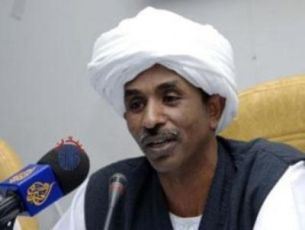Bashir’s east Sudan aide complains of “deficient” participation in power
August 28, 2012 (KHARTOUM) – A Sudanese presidential assistant representing the eastern part of the country has complained about his lack of inclusion in decision-making.

According to Musa, whose party joined the government as part of a 2006 peace agreement that ended nine years of a low-intensity armed conflict in eastern Sudan, their participation in power is “deficient”.
The presidential adviser went on to elaborate saying that he is constantly excluded from decision-making circles and his jurisdictions are limited whether on federal or regional level. He called for the importance of giving his group full jurisdictions and participation in executive authorities.
In his speech, Musa also harked back to the beginning of their armed struggle against the government in mid-1990, saying it was justified by their loss of hope for any recognition of their demands by successive central governments.
East Sudan which comprises the states of Kassala, Red Sea and Al-Qadarif is one of the least developed regions in the country along with the western region of Darfur and the southern regions of Kordofan and Blue Nile.
Musa’s complaint of being sidelined in the center of power mirrors those of other rebel leaders from other marginalized regions who struck peace deals with Khartoum. Darfur rebel leader Mani Arkoi Minnawi also cited similar grievances during and after his short stint in power as a presidential assistant before re-joining the Darfur rebellion.
President Omer Al-Bashir also addressed the BC conference on Tuesday and was present when his aide complained of limited power participation.
Al-Bashir said in his address that the federal government is committed to fund development projects in the east.
East Sudan peace agreement provided for the establishment of a reconstruction and development fund to receive a total of 600 million US dollars in four years to fund development projects in the region.
(ST)
